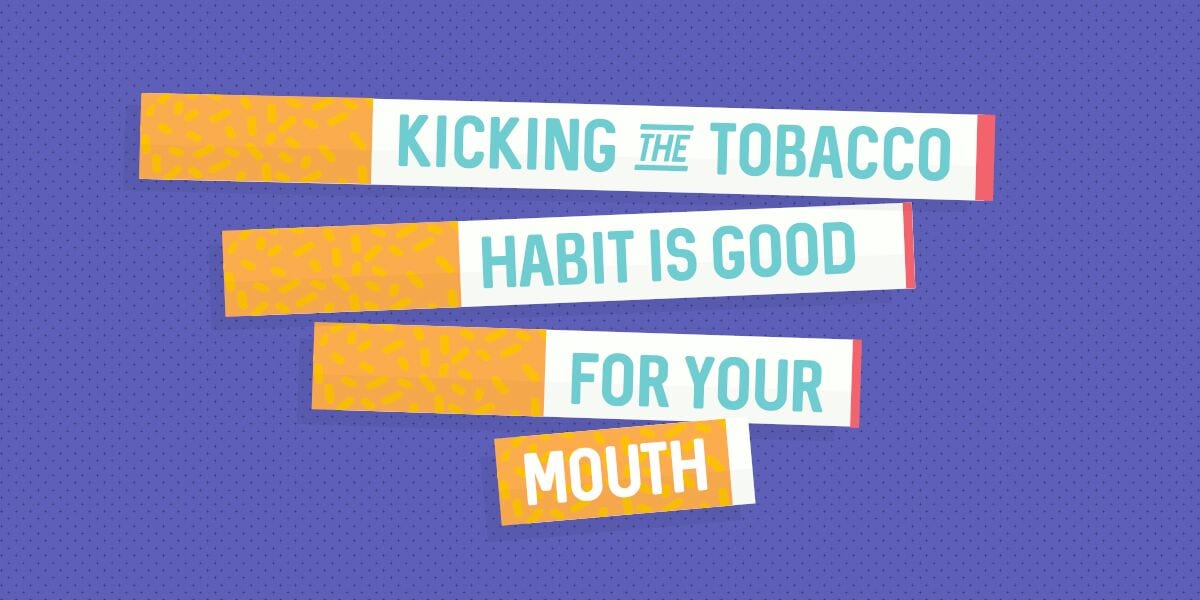- 25
- Jun

Kicking the Tobacco Habit is Good for Your Mouth
While the current percentage of Americans who smoke cigarettes is the lowest it’s been
in decades, those who continue the habit remain at risk for heart and lung disease.
Additionally, while we know smoking is also bad for our oral health, most don’t
understand just how bad it is…
More Than Just Stained Teeth
From its seemingly mild side effects (bad breath, tooth discoloration, buildup of plaque
and tartar), to the more sinister (increased risk of oral cancer, loss of bone within the
jaw, gum disease and any number of resulting complications) – tobacco is indeed an
oral health risk. Tobacco can cause serious health issues by breaking down the
attachment of bone and soft tissue to your teeth. Because of this breakdown, the use
of tobacco makes smokers much more susceptible to infection and diseases. In fact,
90% of people who have cancer of the mouth, throat, or gums admit to using tobacco
in some form.
Cigarettes, cigars and pipes aren’t the only culprits; smokeless tobacco can be just as
detrimental to oral health, if not worse. In fact, there are twenty-eight chemicals found in
chewing tobacco alone that are proven to increase the risk of cancer in the mouth,
throat, and esophagus. Chew-ing tobacco and snuff contain higher levels of nicotine
than those found in cigarettes and other tobacco products, making it exposes the roots,
and ultimately makes teeth more susceptible to decay.
Help is Just Next Door
The only way to help eliminate these risks is to never start using tobacco products, or
to quit if you do. In fact, simply reducing tobacco use is proven to help lower your
risks. If you feel that it is time to reduce your risk of cancer, gum disease, infection
and other oral complications, your dentist or doctor can help you create a plan to help
you quit using tobacco, along with prescribing certain medicines or programs to help
you kick the habit.
Remember, it is never too late to quit. If you’re interested in getting help to quit, let
us know the next time you’re in for an appointment.
